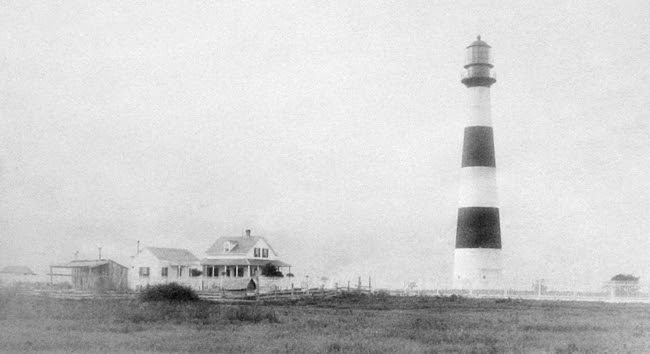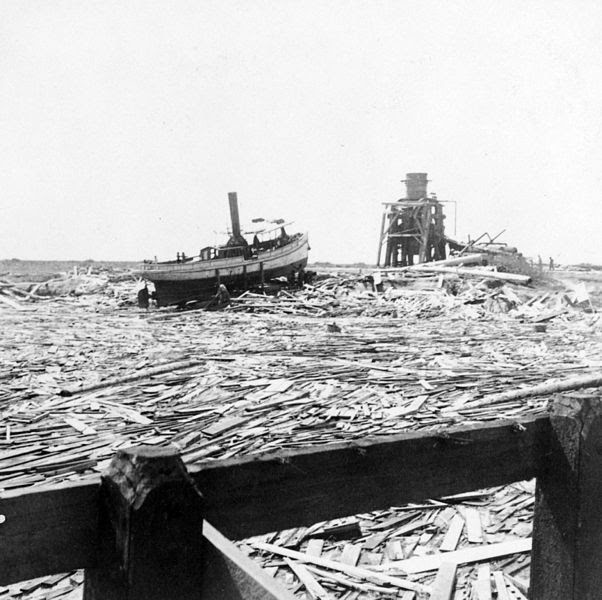Early on the morning of September 8, 1900, a Gulf & Interstate train left Beaumont carrying 95 men and women bound for Galveston.
The train arrived at Bolivar Point around noon. Out in the bay, the ferry that would normally carry train and all across to the island bobbed like a cork on the swells.
Unable to dock, the captain turned back towards Galveston, where he and his crew would meet their fate.
Aboard the train, which was sitting in a foot of water, every soul had a decision to make. Ten made a break for the Bolivar lighthouse. The rest remained in their seats as the engineer reversed, praying to see Beaumont again.
But that plan could not stand against the rising Gulf. The waters soon topped the cars and all 85 were claimed by the storm.
Back at the lighthouse, the ten refugees from the train joined 200 other men, women and children on the spiral staircase of that iron clad cylinder of bricks, where they would spend the next fifty hours.
Over the storm they could hear the guns of Fort San Jacinto signaling distress and calling for help that would not come.

Further down the peninsula at Crystal Beach, the water rose so fast it was pouring through the windows before the Davis family even realized they were in danger.
Mr. Davis hitched his team and loaded his family into the wagon. They were half floated, half pulled by the team to a grove of trees on slightly higher ground.
Mr. Davis lashed his 12 and 14 year old boys to the top of one tree with a clothesline, then used the wagon chain to secure another child in the branches. Finally he climbed to the top of another tree with his wife, who clung to the branches with their baby in one arm, as Mr. Davis kept and iron grip on their toddler.
After the night passed, the winds died, and the waters receded, the family found themselves surrounded by dead animals, the corpses of friends, and the wreckage of homes.
A week later, having survived on the uncooked flesh of a steer, and traveling by foot, in a leaky sailboat, and finally by wagon, they found safety with friends in Houston.

Meanwhile, tons of aid was making its way from all points to Galveston. But it did little to aid victims on the Bolivar peninsula and other portions of the mainland.
Relief trains daily rolled past a countryside filled with wrecked homes as famishing families watched and wondered why the world had forgotten them.
Categories: Texas history, Texas Weather
